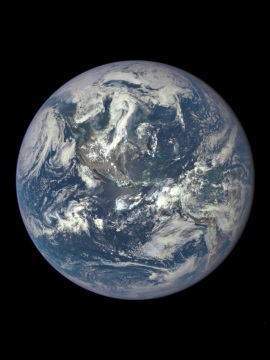The Age of the Earth
James C. Rocks
It is impossible to date, with absolute accuracy, the age of the Earth but in that it is no different from any other science-based theory. Homo sapiens has only been resident for some 50,000 years so we were, unfortunately, unable to witness the birth of our planet.
 The major methods of achieving this are:
The major methods of achieving this are:
Discussion
The key to the age of the Earth is observable phenomena ... that is phenomena observable & measurable today can give us the information we need to discover past events and their timings.
 The major methods of achieving this are:
The major methods of achieving this are:
- Observations based on our solar system and the universe around it.
- Radiometric dating.
- The geologic column.
- The fossil record.
Conclusion
Geologists now date the Earth at 4.55 billion years, a date derived for a number of reasons.
It is worth noting that none of the typical creationist arguments such as atmospheric helium accumulation, oceanic metal accumulation, lunar dust, lunar distance, the shrinkage of the sun, the Earth's magnetic field or its spin represent a particular problem for science. All, without exception, are based on outmoded views, distortions of the evidence or outright lies.
It is also worth noting that in order to replace evolution with a 'young Earth' creation model it must be demonstrated that all of developmental biology, geography, physics, geology and much of chemistry are all fatally flawed. Nothing so far has proved this to be the case.
References
- "Evolutionary and Geological Timelines" Niel Brandt
- "The Age of the Earth" Chris Stassen